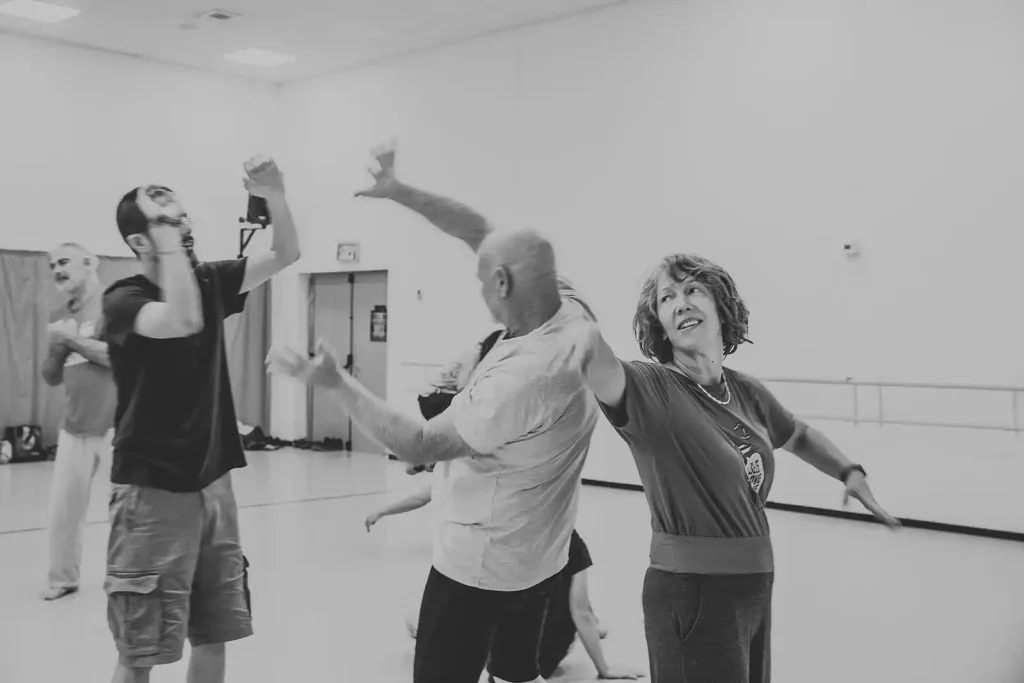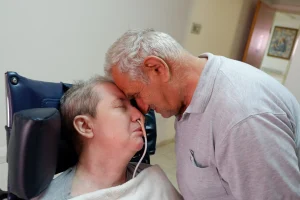somatic grief practice
What is Somatic Grief practice?
Somatic Grief Practice is centered on honoring, acknowledging, and being present with the emotions, sensations, and thoughts that arise as we experience grief through our bodies. Drawing from paradigms such as Somatic Experiencing and Nonviolent Communication (NVC), we understand grief as a sensory response of the nervous system and recognize it as a universal human need rather than just an emotion.
By embracing these frameworks, we become more attuned to our needs and can observe our embodied experiences as we navigate grief. Through personal practice and research, I've discovered that making space for grief also opens the door to profound gratitude and joy.
Becoming mindful of our somatic responses to grief enables us to release stored energy from our bodies and replenish ourselves with new vitality, ultimately helping to restore our life force.
How did I come about Somatic Grief Practice?
My mother's prolonged battle with Alzheimer's Disease, followed by my father's struggle with cancer, brought to light the depths of my own emotional journey. Throughout this challenging decade, I delved into somatic work, exploring movement and mindfulness to connect with my embodied experience.
However, despite my efforts to cope, I found myself increasingly aware of feelings of depression and stagnation. Reflecting on my journey, I realized that I had been suppressing my need to grieve, believing that it was a feeling reserved solely for the moment of a loved one's passing. This misconception left me with unprocessed grief and unresolved emotions that weighed heavily on my spirit.
Recognizing the importance of honoring my grief and allowing myself to feel and express it, I embarked on a journey of self-healing and release. Through somatic practices and mindful awareness, I began to navigate the depths of my sorrow, gradually releasing the pent-up emotions that had been holding me back.
If you're facing a similar struggle, know that it's okay to seek support and to honor your own grieving process. By allowing yourself to acknowledge and work through your emotions, you can begin to find healing and peace amidst the pain of loss.

Following my mother's passing, I found solace in a remarkable opportunity: joining a group of individuals who, like me, had lost their parents and sought to navigate their grief through authentic movement therapy led by a certified practitioner. Meeting every Sunday for three hours over the course of 10 weeks, we collectively held space for our individual journeys of mourning.
In this supportive environment, we were encouraged to bear witness to each other's grief, fostering a sense of communal understanding and compassion.
As someone who finds solace in writing, I seized this chance to create a grief journal, using it as a tool to further explore, process, and integrate my emotions. Whether during our movement sessions or in moments of solitude, writing became a vital companion on my path towards healing and self-discovery.
Throughout this meaningful journey, a transformation took place as I came to realize from my first ever grief journal that for me to make space for grief makes space for gratitude and joy.
Amidst this deeply transformative journey, a profound realization emerged: through the act of making space for grief, I also opened the door to gratitude and joy. It all began with my very first grief journal, where I poured out my heart and soul onto the pages, exploring the depths of my sorrow and longing for my lost loved ones.
As I continued to navigate my grief, I found that allowing myself to fully experience and express my emotions created an expansive space within me. Within this space, alongside the pain and sadness, bloomed seeds of gratitude and moments of unexpected joy.
Through the process of honoring my grief, I discovered that it wasn't just about mourning the loss of my parents, but also about celebrating the love and memories we shared. Each entry in my grief journal became a testament to the richness of our bond and the beauty of life itself, even in the face of loss.
This journey taught me that grief isn't just about saying goodbye; it's also about embracing the gifts of love, connection, and resilience that endure long after our loved ones have passed. And for that, I am profoundly grateful.
Facilitating meaningful interactions with people living with dementia through improvisational arts and embodied non-violent communication.
- dementia
- Lecture & Workshop
- for Organization / teachers
- group sessions
- in person and online
mentor to guide you or your creative group toward the completion of a creative process based on Somatic Grief Practice
- grieving processes
- sessions
- everyone
- Group
- Online and in person
- grieving processes
- sessions
- everyone
- groups (3 people and more)
- Online and in person
one on one practice sessions through movement and/or writing
- grieving processes
- sessions
- everyone
- one on one
- online and in person
Testimonials
Liza, thank you!
Liza, the wake on Saturday was so so so beautiful and a big part of it was the inspiration and support you offered me, so thank you!
Liza is a heart-centred soul and a true artist
I have had the pleasure of facilitating a grief circle with Liza, in which she created a container of safety, empathy, and creative expression for our participants. We have also collaborated on her visual story "The Nine-Month Snail Dance" in which she shared her deeply personal story about grief, acceptance, and healing.

